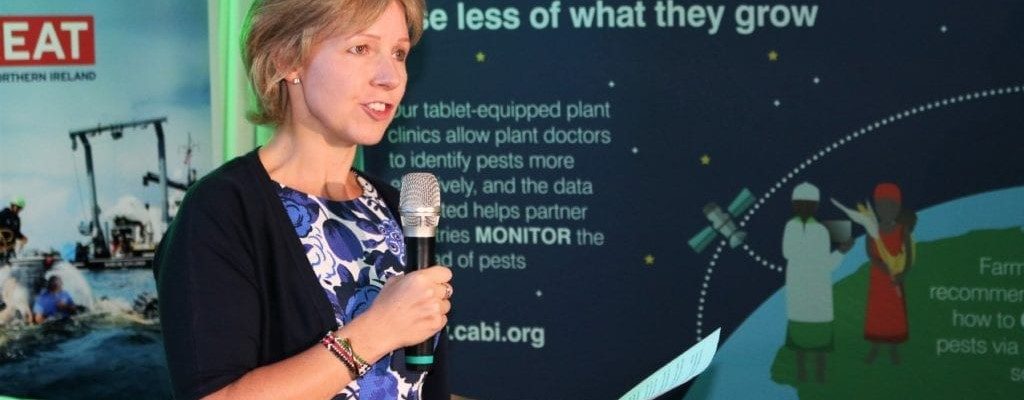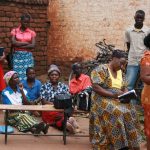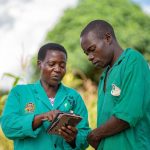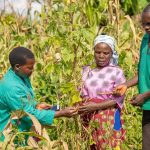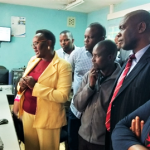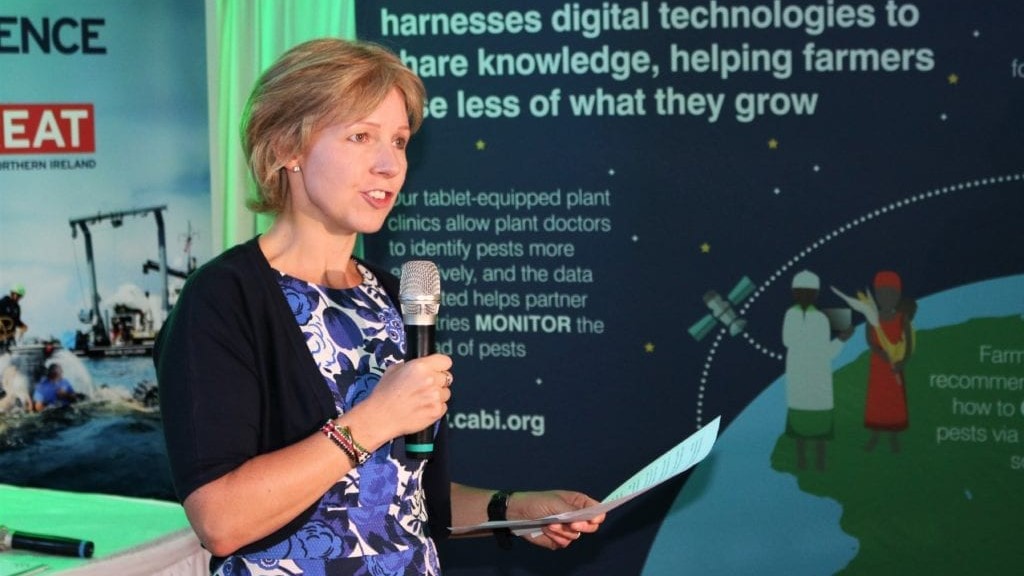
Space-age technology to provide farmers with an early warning of pest outbreaks, which could devastate their crops and livelihoods, is paying dividends by increasing yields and reducing losses for maize farmers in Kenya.
Members of the CABI-led consortium, funded by the UK Space Agency and the Global Challenges Research Fund with co-funding from the CABI-led Plantwise programme, have updated officials in Kenya on the progress of the Pest Risk Information Service (PRISE) developed to alert farmers to pests including the maize stalk borer.
During an official launch of PRISE this week at the Deputy British High Commissioner’s residence in Nairobi, CABI told a delegation, which included officials from the UK government, and the Ministry of Agriculture, Livestock and Fisheries, Kenya, that maize farmers who received pest alerts are expected to experience fewer losses than those who had not partaken in the service.
Research is currently being conducted to assess exactly what impact PRISE is having alongside other Integrated Pest Management strategies employed by farmers.
PRISE, which was implemented in Kenya in 2018 and is currently also operating in Malawi, Rwanda and Zambia, works by using satellite data to track the crop pests before sending text message alerts to Plantwise plant doctors. They then either pass on the information to farmers in the field or through the network of plant clinics.
The plant doctors then help the farmers identify the pest before offering a range of options to manage the impact on their crop – ultimately helping them to grow more and lose less to pests and diseases, thereby increasing their yields and livelihoods.
Farmers, who have access to a mobile phone, can also receive text alerts themselves directly and can then consult a plant doctor if necessary.
Charlotte Day, CABI’s project manager for PRISE, said, “An estimated 40 percent of the world’s crops are lost to pests, impacting smallholder farmers’ ability to feed their families, limiting international trade and food supply chains and hampering the pursuit of Sustainable Development Goals ‘Zero Hunger’ and ‘No Poverty.’
“It is important that we harness the very latest technology to try and be one step ahead of the pests and equip all extension workers, not just Plantwise plant doctors, with the information they need to provide timely advice to farmers.”
A survey of plant doctors and farmers in the counties of Kenya during the 2018/19 cropping season showed that farmers who did not receive alerts experienced higher maize production losses with an average of 26 percent, compared to those who did receive alerts where their losses were 21 percent.
The partners were advised that while the pest alerts are helping to reduce crop losses for maize farmers they still need further help in distinguishing between various pests – for example the Fall armyworm and the maize stalk borer.
Recommendations, in a report highlighted at the official launch, also included ‘tapping into’ existing weather alert systems that farmers already receive on their phones as well as incorporating the pest alerts into public meetings and farmer field days.
Deputy High Commissioner Susie Kitchens said, “The benefits of PRISE will go beyond individual farmers, and into the broader plant health system, demonstrating how a holistic approach to value chain engagement is important in achieving food security and creating a stronger economy for Kenya.
“Extension workers will be better informed about pest threats, and able to warn farmers early. Input suppliers will be able to predict demand, and get the right products where they are most needed. And insurance and financing companies will have a more accurate picture of the levels of risk facing their clients.”
Other partners, Kings College London, are conducting Land Surface Temperature trials to validate the satellite earth observation data that PRISE obtains and calibrate the environment parameters within the pest risk models. This work is currently taking place in Kenya with Zambia soon to commence.
